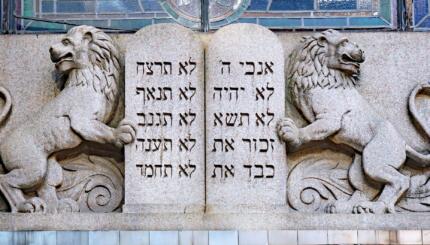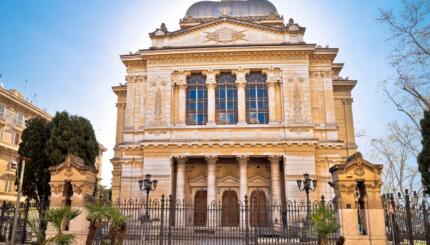Ari Alexander is guest blogging (via Blackberry) from the World Conference on Dialogue in Madrid, organized by the Muslim World League under the patronage of King Abdullah of Saudi Arabia.
Here’s an example of the kind of thing I learned here that I wouldn’t have otherwise known.
King Abdullah, as custodian of the two holiest places in Islam, Mecca and Medina, is not imbued with religious significance in and of himself. Yes, he is king of the land that hosts these two places that are holy to all Muslims. But no, his convening this conference does not have religious significance in the sense of a world religious leader making a historic religious move.
In other words, the comparison to Vatican II suggested by some western press sources is probably misleading.
At the same time, the fact that he initiated this dialogue removes one significant obstacle that had stood in the way of the global muslim community in pursuing interfaith dialogue.
You should also know that this event is being covered by the arab (and the spanish) press at a totally different level than the general western press. The biggest pan-arab dailies such as al-hayat and asharq al-awsat, have photos and stories on the front page every day about the conference.
While the conference has generally steered clear of politics (with the exception of the fascinating exchange between 6 Muslim and Jewish leaders about Israel/Palestine during the Q & A of one of yesterday’s sessions), the interest in the arab media is likely related to analysis about the political ramifications of King Abdullah’s initiative.
Similarly, the Pakistani television reporter who interviewed me was clearly MOST interested in the potential of this gathering to impact Pakistani-Israeli relations. For him, King Abdullah’s overture to Jewish leaders led him to consider the possibility that countries, his specifically, in the Muslim world, might face a faster track to diplomatic ties and even normalization with the Jewish state.
Jews and certainly mainstream Jewish organizations, tend to care passionately about Israel. And the trend of interfaith dialogue has developed in a world with Israel. This often leads to Jews beginning ‘interfaith’ dialogue with Muslims far from a conversation about ‘faith’.
And yet, outside of the American Jewish community, it seems to me that Jews speak in interfaith dialogue settings much more about freedom to practice religion, rights and protections of minorities, rituals and spirituality.
It’s no wonder my Muslim partners in dialogue over the years cannot figure out whether we’re a political, ethnic, racial or religious community. This is a crucial intra-faith conversation I believe to be in its infancy in the American Jewish community. We haven’t caught up in our sense of self, in our internal conversation, with the drama of the generation in which our parents grew up – the years between the Holocaust and post-67 Israel.
I understand why some Jews have a single-minded focus in dialogue with Muslims – to get them to accept Israel’s right to exist as a Jewish state. Anything short of this or other than this carries little weight in their eyes. Their partners sign on the dotted line, so to speak, to at least a minimal acceptance of Zionism.
Such Jews are likely to deem anti-Semitic anyone who does not do so. They use this term because their Zionism is at the core of their Jewish identity. Anti-semitism and anti-zionism are now entangled accusations. Muslims have almost been forced to become Zionists or anti-Semites, and to deal with the consequences.
My approach to dialogue with Muslims self-consciously strays from the mainstream American Jewish approach. It centers on a process, beautifully described by Rabbi David Rosen yesterday in a passionate response to one of the panelists – a dialogical process where we seek to understand the other as the other understands oneself.
That is my not-so-hidden agenda. It is a two way street. That, for me, is the spirit of dialogue – and just as worthwhile at a family dinner table or local community center, as at a two-kings conference with religious authorities of global significance.
And it probably comes as no surprise that those with followings in the millions sometimes have less capacity to engage in this sort of dialogue than ordinary citizens.
But perhaps those who go through the transformative process catalyzed by this sort of dialogue with the other have the means to deploy the lessons learned to extraordinarily large numbers of people.
Let us hope that progress was made on that front here when the cameras were turned off. I saw many scenes here in Madrid to suggest reasons for optimism.


